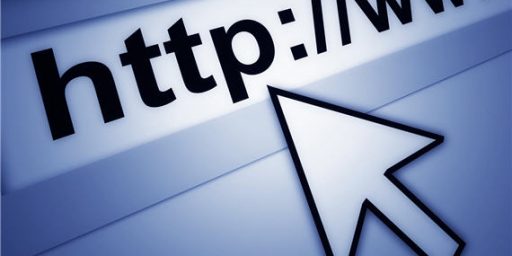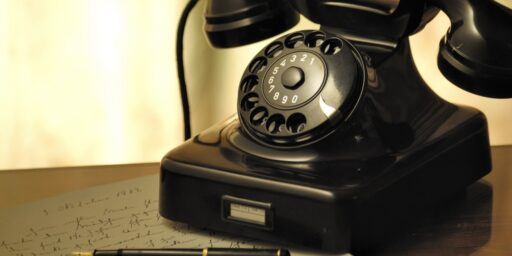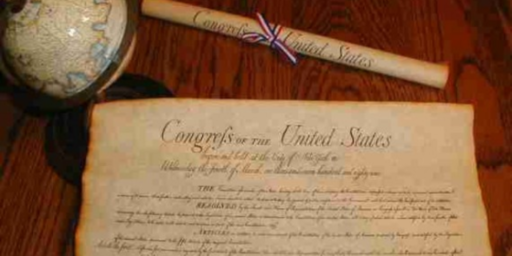FCC About To De-Link Area Codes And Location?
Since the beginning of the telephone system, area codes have been generally strictly tied to the location where the phone was located. Someone in New York City would get a number with a 212 Area Code, New Jersey residents initially got 201, and, of course, the District of Columbia got 202. As time wore on and the number of phone numbers needed began to explode, the old area codes were divided up and new numbers assigned. I can still remember when 201, which by that time was used in Northern and most of Central New Jersey, was divided to make room for 908. Now, that area of New Jersey has six separate Area Codes, including three “overlay codes,” a term used to describe areas that are assigned more than one code. New York City now has six area codes all by itself. At this point, only sparsely populated states are likely to have a single area code, and even those are starting to become rare.
Now, the FCC is considering a proposal that would sever the link between location and Area Codes completely:
Federal Communications Commission Chairman Julius Genachowski wants to change the rules of the telephone numbers game, according to commission officials.
Genachowski began circulating a series of proposals among fellow commissioners Wednesday that could make it easier for VoIP (voice over Internet protocol) providers to tap the national telephone numbers pool and eventually sever the relationship between an area code and an actual geographic area, the sources told POLITICO.
The proposals respond to calls by VoIP providers who do not like having to go through a phone-company middleman to get telephone numbers for customers. Numbers may seem prosaic, but they are dear to people’s hearts and a valuable commodity.
While some of these changes are already taking place in the marketplace, Genachowski thinks that modifying the rules can open the door for more services and increase competition, commission aides explained.
“Allowing VoIP providers to obtain telephone numbers directly, and not through intermediate providers, as is generally the case today, has the potential to fuel innovation and promote competition, at the same time we ensure calls are routed reliably and efficiently, protect public safety, and guard against exhaust of limited numbers,” a commission official wrote in an email.
Genachowski’s plan includes a notice of proposed rule-making that seeks comment on new rules governing the way VoIP providers get access to the pool of phone numbers. It also seeks to establish a pilot program to test direct numbers access and launches an inquiry into the way numbers are managed, including their relationship to a geographic area.
“Today, the chairman circulated a proposal to seek public comment on giving VoIP providers direct access to telephone numbers and to permit trials of direct access in selected markets,” the commission official wrote. “This item would advance our ongoing agency-wide effort to modernize our rules for today’s broadband marketplace, while promoting competition, protecting consumers, and ensuring public safety.”
If adopted, this would likely be the first step in a process that will eventually make location irrelevant when it comes to assigning area codes. In an era of cell phones, VoIP, and calling plans that make the idea of “long distance” telephone calls seem like an anachronism, this seems like an inevitable outcome.






About time.
I can’t get to the xkcd website through the work firewall. If I could, I would link to the comic where he explains the anatomy of the cell phone number. The definition of “area code” is “the city where you lived in 2005.”
Pretty much true. I’ve had a 404 number since 2009. I lived in Atlanta for less than a year. I only got it because my previous 617 number was attached to a work cell phone that I had to surrneder when I moved out of Boston.
I’m surprised it took this long, but the FCC doesn’t tend to move real fast on much of anything.
VoIP makes it possible to dispense with a “telephone number” altogether, but people still like them, so it’ll be a while before they go away. I think eventually we’ll end up with personalized identifiers that people get when they’re young and basically keep forever, regardless of where they live.
@Gromitt Gunn:
http://xkcd.com/1129/
Naw, they should just randomly re-arrange them once in awhile. Then all the businesses with landlines have to print new stationery and stuff, spurring the economy!
/yes I’m kidding
//I lived in an area that got a area code change and zip code change within 5 years of each other, so this is based on a true story
@Franklin: Where I lived in the Detroit area went from 313 to 734 to 248 within a few years. And the zip code changed, too. Fun!
Ha, you’re talking about almost the same area – but I’m pretty sure we didn’t go through the 734 part.
How can they possibly do routing?
The “where you lived in 2005” is still a pretty good first guess. Wouldn’t a randomized world require a look up in a table billions long?
@Franklin: Ah, it wasn’t 734, it was 810. We went from 313 to 810 in 1993 and then to 248 in 1997.
@john personna: That’s the beauty of it, it’s the internet so it routes just like the internet, hierarchichally. The VoIP servers act like a DNS for “telephone numbers.” The only entity that needs to know exactly where your phone is, is your provider.
This should have happened a long time ago. Until it does Verizon for ex will do what comes naturally and leverage its inherited phone number blocks into top dollar.
Show of hands. Anybody else besides me recall when your phone number was a two-letter code followed by 5 digits? E.g., AB-12345? And no area codes.
@Mikey: Holy cow, you’re right. I totally forgot 810. Now I’m actually in 734, though!
@john personna: How big is a DNS lookup?
@sam: I’m older than that. My first phone number was WE 7308. My grandma’s was 379W, but her phone didn’t have a dial and she needed operator assistance until about 1965 or so.
The next logical step would be to make phone numbers obsolete. Unique alphanumeric identifiers can be infinite in variety whereas ten-digit numeric identifiers are by definition … not.
As VoIP becomes more and more the norm, there’s no reason why my email address, or one I, as an internet domain owner, establish and designate for the purpose, couldn’t serve as my phone address.
Yes, this would improve functionality, but it reduces information that I sometimes find useful. If I’m getting a call from an area code in which I do no business, I can tell immediately that this isn’t something I need to take seriously.
And, until the world completely ignores area codes and landllines, there’s still some utility in having a ‘local’ area code. I have a (202) area code for my cell. That means it’s a free call for people in the DC area to call me on that number, not a long-distance number to my home. Perhaps when everyone gets free long-distance that won’t matter. Or perhaps when landlines go defunct.
@Mikey: Mine went from from 313 to 810 to 586.
…and the zip code did change at some time in there.
Since moving to Florida in 1976, the location I live at now has had three area codes- 305, 407, and 561.
@Franklin: It’s slightly different from DNS. Historically the first 6 digits of a phone number were associated with a particular end office. So, if your number was 202-555-1212, 202-555 (area cose/prefix) was a particular geographic place, just like 202 was a place (or an area). With number portability, any area code/prefix that had number portability required a data base look up to see if the number had been ported out. If ported, the area code/prefix would be replaced with an LRN (location routing number) that was in fact an area code/prefix associated with the port-to carrier. When it got to their switch, they would complete it to the customer however they want.
Geographic portability has been a fact since cell phones were added to portability. They were originally excluded.
I have not seen the FCC proposal, but as long as a VoIP provider can get an LRN, the next trick is only to allow them to “sell” a number to a new customer instead of porting an existing number.
@SKI: I have long thought that it would be interesting to watch how area codes migrated over time. It would be like trying to map ethnic migrations by blood type. You might find that 212s migrated to Florida while 312s migrated to Arizona.
@sam: You might also recall why older area codes had 0 or 1 as the second digit and the larger metro areas had smaller numbers (e.g., 202, 212, 312). Those were the shortest dialing patterns on a rotary dial phone. 0 and 1 were excluded from the first position because an initial 0 was an operator call and an initial 1 was a toll indicator.
Thanks for the DNS comparison. DNS is big, but not really as bit, and it does benefit from the power rule. The most frequently requested names are much more frequently requested.
The DNS engineers must hash into a high-frequency table as a first shot.
A typical phone number look up is going to look like a worst-case DNS look-up, far out on the long tail.
Piece of trivia: until about twenty years ago, all area codes had a 1 or a 0 as its second digit.